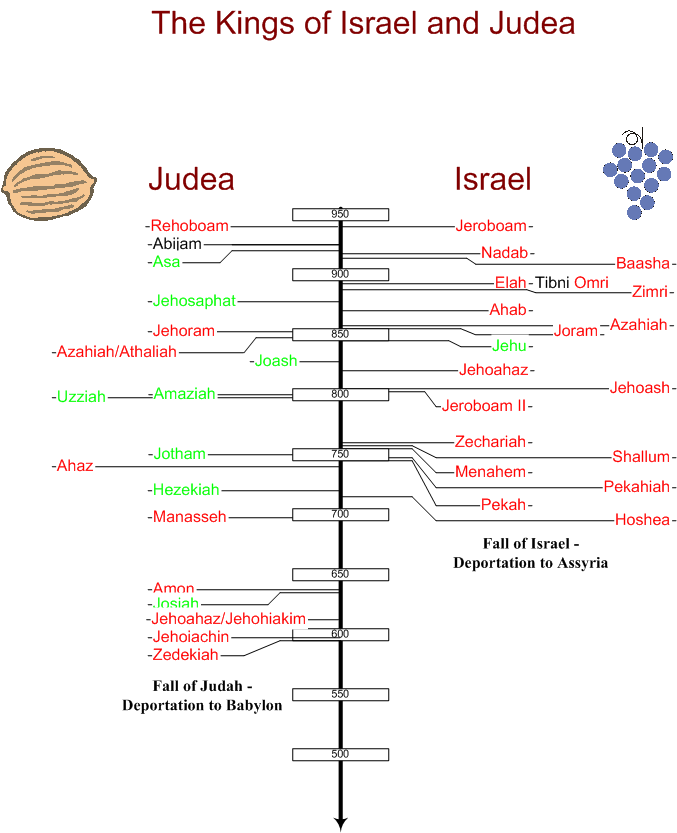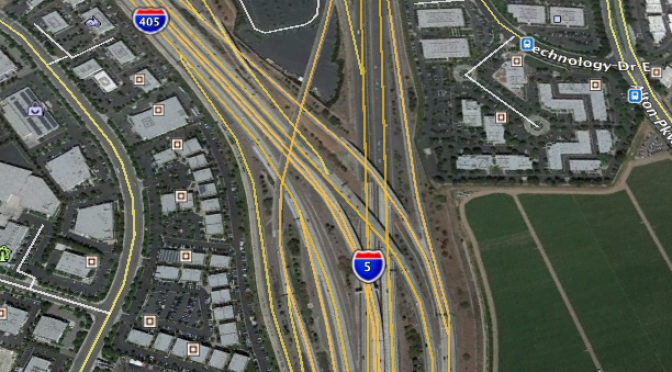Why? I used to think that it was impertinent to ask God that question. After all, He’s God, and I’m not. Besides, I thought, he never answered Job’s great question, why do people suffer…
…Such as on the El Toro Y? Why do people put up with that insufferable piece of road? It will never have enough lanes to accommodate the traffic passing through it. And the drivers will MOW you down if your speed falls below 85, provided it hasn’t been transformed into a parking lot, which it does, for 22 of 24 hours a day.
Why do they put up with it? I couldn’t. I’m not tough enough. I moved. (Just kidding, my sisters and brothers of the OC, I salute you.)
God, why don’t You do something about this dreadful world we live in, and punish the evil in our land, the injustice, the mocking of God, the tolerance and celebration of depravity, the exaltation of false religion, the persecution of the righteous?
Wait, are we speaking of 7th century BC Israel, or 21st century United States? After all, this is a website dedicated to the return of God’s people in America to God after all.
So let’s see how God answered our intrepid questioner. Will there be a glimmer of insight or perspective into our present-day moral dilemma? I hope so. After all, God rewarded Habakkuk’s questions, for which we should all be grateful. Had he not asked, we might not get this insight as to how God might deal with another country called by His Name (In God we Trust
).
And I don’t fret any more about asking God my why questions…
The Book
The book is a powerhouse The three doctrinal books of the NT are Romans, Galatians, and Hebrews. And all quote from itty bitty Habakkuk. (Hab 2:4) the cornerstone of the Christian faith, salvation by grace through faith.
It is eloquently written. Although compact in size, it’s subject is covered seldom elsewhere. And we see the progression of a “Doubting Thomas” (maybe Thomas should be a doubting Habakkuk) from perplexity to praise, the (super) natural response of the believer whose question is answered. It was written just before the exile to Babylon.
Chapter Outline
Chapter 1: The Piquing Problems of the Prophet.
Chapter 2: The Patient Persistence of the Prophet
Chapter 3:The Powering Praise of the Prophet
Habakkuk 1:1 The Man and His Times
An oracle is also translated a burden, a judicial judgment about to be passed. Recall the use of the word burden from Galatians 6:2; it is to be shared, it is too grievous to bear alone. He received this burn; it is God’s burden, which He chose to relay to people through His instrument, Habakkuk. Habakkuk means embracer. We could throw a lot of speculation, but perhaps we might think of this (and every other Biblical writer) as God’s instruments Almost everything we know about him we surmise, from his name to his actions to his times. We may say, however, he appears to be a learned man, his book is polished prose. We know he was a musician, the end of the book includes a directive that the third chapter, a psalm, was to be played on his stringed instruments. We know he possessed the sensitive heart of a righteous man; like righteous Lot (2 Peter 2:7), he too was oppressed by the wickedness of his countrymen. He lived near the time of the deportation of Judea to Babylon. The last righteous king, Josiah, was dead, replaced by such evil as Jehoiakim, Jehoiachin, and Zedekiah.

The spiritual stench of these last rulers of the monarchy was so egregious, that the Lord went so far as to terminate the monarchy:
Thus says the Lord, ‘Write this man down childless, A man who will not prosper in his days; For no man of his descendants will prosper sitting on the throne of David, or ruling again in Judah.’Jeremiah 22:30
The indictment of Judea was grievous: The country, led by its evil kings (and those guys put the E in evil) We can summarize them thus:
Jehoiakim:
He did evil in the sight of the Lord, according to all that his fathers had done 2 Kings 23:37Jehoiachin:
He did evil in the sight of the Lord, according to all that his father had done.2 Kings 25:9Zedekiah:
He did evil in the sight of the Lord, according to all that Jehoiakim had done.
2 Kings 24:19
Sounds like a broken record. Some specifiics: Jehoiakim was a vassal of Pharaoh Neco. To pay the heavy tribute, he imposed heavy taxes, undid all the spiritual reforms hips father Josiah had instituted, brought back idol worship, especially Egyptian cultic practices. He also built expensive palaces with forced labor, killed innocent people, including a prophet, Uriah (nb not the band Uriah Heep:) ) and burned Jeremiah’s scroll, and according to Josephus:
and was neither reverent toward God, nor kind to man. Antiquities 10.83
This was the injustice that assaulted Habakkuk. But as we shall soon see, the solution might have seemed to poor Habakkuk as using gasoline to quench a fire: the dreaded Babylonians!
The Babylonians Under Nebuchadnezzar
The concept of Babylon, all by itself, was enough to put dread into the heart of the pious Jew of the 7th century BC. Under the rule of Nebuchadnezzar, the troops under his command might be likened to the blitzkrieg (Lightning War) tactics of the Nazis in World War 2.
During this time, Nebuchadnezzar routedPharaoh Neco at the battle of Carchemish (606BC) after earlier defeating the Assyrians in 612 BC at Nineveh. See entries at Jer 46:2 and 2 Chr 35:20-24
The spiritual depravity of the city and empire date back to just after the Flood, and the rebellion at the Tower of Babel Genesis 11:1-9. That was the beginning of the formal rebellion against God, spearheaded by no less than Satan himself. Isaiah 14:1-23 who was the “man behind the man” fomenting this rebellion.
And this was not lost on the Jews. That God would use the very nation in whose crosshairs was centered the focus of His direct and deserved wrath blew Habakkuk’s mind.
And the tip of the spear was Nebuchadnezzar himself. Of all things, hand picked by God to be the mightiest ruler of all time, a man with absolute authority Dan 2:36:39.
He was also ruthless: Daniel’s companions were thrown into the lion’s den for failure to worship his graven image. Daniel, who had won Nebby-K’s (a sobriquet used to keep the stories interesting to my two daughters) confidence was thrown into the lion’s den, who after surviving the night, Nebuchadnezzar had the conspirators and their families thrown into the same pit.
Application
Am I bold in my prayer? Am I praying for revival in my nation, state, in my city, in my church, my family, my heart?

awesome Terry!
Boy Terry, this is so good. Fascinating, and I’ve only skimmed over your outline! Now, to dig in! Can’t wait for tonight. Thanks for all that you do. 🙂